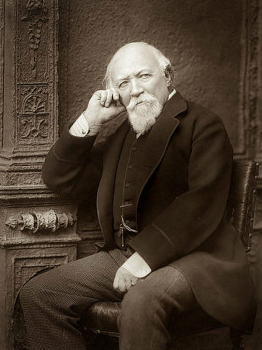Is there no special significance to the Spring and Autumn Period and the Warring States Period in Chinese history? In fact, the Spring and Autumn Period and the Warring States Period were not only a unique era in Chinese history, but also an extremely turbulent and complex one. During this period, China faced over 500 years of political, military, and cultural chaos and strife. Nevertheless, it was also a time that saw the emergence of numerous outstanding thinkers, politicians, and military strategists, who had a profound impact on Chinese history and culture. Therefore, the Spring and Autumn Period and the Warring States Period occupy a special place in Chinese history.

Firstly, the Spring and Autumn Period and the Warring States Period marked the golden age of ancient Chinese thought and culture. Many prominent thinkers and scholars emerged during this era, such as Confucius, Mencius, Lao Tzu, Zhuangzi, and Xunzi. Their thoughts and cultural achievements had a lasting impact on Chinese history and culture. Among them, Confucianism, Taoism, Mohism, and Legalism became significant components of ancient Chinese thought and culture, exerting profound influence on later generations.
Secondly, the Spring and Autumn Period and the Warring States Period were also the beginning of Chinese military culture. During this time, China's military culture shifted from a reliance solely on weapons to a more strategic approach. Famous military strategists and generals emerged, including Sun Wu, Wu Qi, Bai Qi, and Han Xin. Their military theories and strategies significantly influenced Chinese military culture. In particular, Sun Wu's "The Art of War" is a representative work of ancient Chinese military culture, leaving a lasting impact on subsequent generations.
Thirdly, the Spring and Autumn Period and the Warring States Period were also a period of political transformation. Significant changes occurred in China's political culture, shifting from the feudal system to centralized power. Prominent politicians and thinkers like Shang Yang, Li Si, and Han Feizi emerged, and their political ideas and reform measures had a significant impact on Chinese political culture. Among them, Shang Yang's "Qin Laws" and Han Feizi's works are representative of ancient Chinese political culture, exerting profound influence on later generations.
Lastly, the Spring and Autumn Period and the Warring States Period were also a period of rapid socio-economic development. China's socio-economic landscape underwent rapid transformation, shifting from slave-based economy to feudal economy. Prominent economists and politicians like Guan Zhong, Fan Li, and Xiao He emerged, and their economic theories and policies had a significant impact on Chinese socio-economic development. Guan Zhong's "Guanzi" is a representative work of ancient Chinese economic culture, exerting profound influence on later generations.
In summary, the Spring and Autumn Period and the Warring States Period occupy a special place in Chinese history. This era witnessed the emergence of numerous outstanding thinkers, politicians, and military strategists who had a profound impact on Chinese history and culture. Simultaneously, it was also a time of rapid socio-economic development, with prominent economists and politicians whose economic theories and policies significantly influenced China's socio-economic landscape. Therefore, we should fully recognize and appreciate the special significance of the Spring and Autumn Period and the Warring States Period in Chinese history and culture.
Disclaimer: The above content is sourced from the internet and the copyright belongs to the original author. If there is any infringement of your original copyright, please inform us and we will delete the relevant content as soon as possible.































